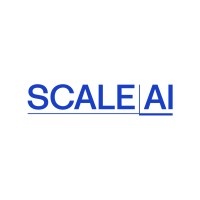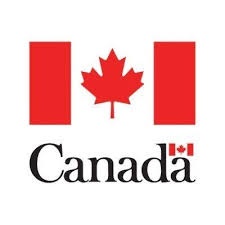
New Frontiers in Research Fund — International Stream
At a glance
- Maximum amount : 1,000,000 $
- Up to 25% of project cost
- Open Date : June 1, 2024
- Closing date : December 31, 2024
- Agriculture, forestry, fishing and hunting
- Professional, scientific and technical services
- Educational services
- Health care and social assistance
- Public administration
- Canada
- All legal structures
- All revenue ranges
- All organization sizes
- Indigenous Peoples
- Rural or Northern Residents
Overview
The 2024 NordForsk-led International Joint Initiative on Sustainable Development of the Arctic provides funding up to C$1,000,000 per year, supporting research projects that are co-developed and co-led with Indigenous communities in Canada. The program aims to address sustainable development challenges in the Arctic through projects that integrate equity, diversity, and inclusion in their research design.
Activities funded
This grant supports research projects aimed at achieving the sustainable development of the Arctic through international collaboration. Eligible projects require a strong emphasis on indigenous partnership, knowledge mobilization, and equity, diversity, and inclusion.
- Projects co-developed and co-led with Indigenous communities.
- Research initiatives that involve partners from a minimum of three Nordic countries.
- Projects that integrate equity, diversity, and inclusion in their research design.
- Collaborative efforts focusing on knowledge mobilization and community uptake.
- Initiatives supporting early career researchers within five years of their first research-related appointment.
Eligibility
Eligibility for this grant requires specific conditions to be met by research teams and their members.
- Proposals must meet the requirements as set out in the NordForsk call document.
- A minimum of three Nordic countries must be represented on the research team.
- The research team must include at least one member who is eligible to apply to the New Frontiers in Research Fund (NFRF).
- Research teams must submit an application through the NordForsk Application Portal.
- Research teams seeking NFRF funding must also complete a registration and application in the Convergence Portal.
- The Canada-based team must have a minimum of two co-principal investigators (co-PIs), including a nominated principal investigator (NPI) and a co-PI who is a representative of the community where the research will take place.
- The NPI's primary affiliation must be with a Canadian institution holding full institutional eligibility with one of the federal research funding agencies (CIHR, NSERC, or SSHRC).
- The NPI must be considered an independent researcher at their primary affiliation.
Who is eligible?
This grant targets research teams focused on the sustainable development of the Arctic and mandates collaboration with Indigenous communities. The evaluation and selection criteria focus on equity, diversity, and inclusion in research practice, as well as the project's impact and feasibility.
- Equity, diversity, and inclusion in research practice and support of early career researchers (Pass/Fail)
- High reward potential, specifically regarding the benefits to Canada’s Arctic communities (Pass/Fail)
- Feasibility of co-production with Indigenous communities and appropriate integration of equity, diversity, and inclusion in the research design, along with justified budget allocation (Pass/Fail)
Who is not eligible
Certain companies and organizations are ineligible to participate in the 2024 NordForsk-led International Joint Initiative on Sustainable Development of the Arctic due to their status or primary activities. These restrictions ensure alignment with the objectives of the grant and compliance with federal funding guidelines.
- For-profit organizations are not eligible to participate in any role in a proposal.
- Organizations affiliated with federal, provincial, territorial, or municipal government departments are restricted from applying as co-PIs or co-applicants.
- Individuals affiliated with for-profit entities cannot be part of the research team, including collaborators.
Eligible expenses
This grant supports collaborative research initiatives focusing on the sustainable development of the Arctic region. Projects are expected to be co-developed and co-led with Indigenous communities and should integrate equity, diversity, and inclusion in their approach.
- Co-development of sustainable practices with Indigenous communities in the Arctic.
- Research projects focusing on environmental conservation and climate resilience in Northern regions.
- Projects that integrate equity, diversity, and inclusion considerations in their research and activities.
- Initiatives that aim to establish inclusive and equitable partnerships in Arctic research.
Eligible geographic areas
This grant does not specify eligible geographical areas for companies; instead, eligibility is governed by the composition and eligibility of the research team and their partnerships.
Selection criteria
The evaluation and selection of projects for this grant are based on specific criteria to ensure alignment with the grant’s objectives. The selection criteria will be reviewed on a pass/fail basis.
- Equity, Diversity, and Inclusion (EDI) in research practice and support of Early Career Researchers (ECRs): Applicants must demonstrate commitment to EDI, focusing on team composition, recruitment processes, training, development opportunities, and inclusion.
- High reward: Evaluates the potential benefits to Canada's Arctic communities in terms of project outcomes.
- Feasibility: Considers the approach to co-production with the Indigenous community, integration of EDI in research design, and budget justification limited to research-related expenses in Canada.
How to apply
Review Eligibility and Guidelines
- Ensure that your research meets the criteria outlined in the NordForsk call document.
- Verify institutional eligibility and the eligibility of team members.
- Confirm that your project partners with an Indigenous community, as required by the NFRF.
Attend Informational Webinar
- Participate in the webinar offered by NordForsk to understand the application process.
- Review recorded sessions if unable to attend live.
Initiate Registration
- Nominated Principal Investigator (NPI) initiates application in the Convergence Portal.
- Complete and submit the registration form by May 30, 2024, to your Research Grants Office (RGO).
- Ensure to register separately on the NordForsk application portal by their deadline.
Prepare Application
- Draft your project proposal, ensuring alignment with NFRF guidelines.
- Develop a budget and supporting documents, incorporating co-creation with Indigenous communities.
- Integrate Equity, Diversity, and Inclusion (EDI) into your research design.
Submit Application
- Complete the application in the Convergence Portal following the submission guide.
- Submit the full application through your RGO before their internal deadlines.
- Provide the NordForsk application number during registration in the Convergence Portal.
Application Review and Selection
- Applications reviewed against NFRF's EDI criteria, high reward, and feasibility.
- Only applications approved by the NordForsk-led process eligible for NFRF funding.
Additional information
Various details about the 2024 NordForsk-led International Joint Initiative on Sustainable Development of the Arctic call have been given, pertinent to eligibility, application process, and relevant policies.
- Termination of a grant occurs if the grantee no longer holds an eligible position, unless transferred to an eligible co-PI or co-applicant.
- The Canada Research Coordinating Committee (CRCC) provides strategic direction and oversight for the NFRF, with the NFRF Steering Committee including the presidents of CIHR, NSERC, and SSHRC, and deputy ministers.
- All applicants and grant holders must comply with the Regulations Governing Grant Applications and Tri-agency Guide on Financial Administration.
- Recipients must adhere to the Tri-Agency Open Access Policy on Publications and are encouraged to manage their research data per community standards and best practices.
- Applicants will be informed of competition results via NordForsk, with associated NFRF grant information communicated through the Convergence Portal.
Contacts
Frequently Asked Questions about the New Frontiers in Research Fund — International Stream Program
What is the New Frontiers in Research Fund — International Stream?
How much funding can be received?
What is the deadline to apply?
Who is eligible for the New Frontiers in Research Fund — International Stream program?
What expenses are eligible under New Frontiers in Research Fund — International Stream?
Who can I contact for more information about the New Frontiers in Research Fund — International Stream?
Where is the New Frontiers in Research Fund — International Stream available?
More programs like this

Industrial Research Assistance Program (IRAP) – AI Assist
National Research Council Canada (NRC)
CanExport GAC-Led Delegations
Trade Commissioner Service (TCS)
Strategic Innovation Fund (SIF)
Innovation, Science and Economic Development Canada (ISED)
AI-Powered Supply Chains Cluster (Scale AI)
Global Innovation Clusters (GIC)
AgriScience Program – Clusters
Agriculture and Agri-Food Canada (AAFC)
Canada Public Transit Fund
Housing, Infrastructure and Communities Canada
Industrial Research Assistance Program (IRAP) — Youth Employment Program (YEP)
National Research Council Canada (NRC)
Mitacs Accelerate
Mitacs
NRC IRAP – Support for clean technology
National Research Council Canada (NRC)